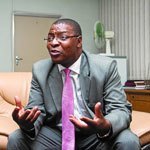
The National Constitution Assembly (NCA) said at Independence in 1980, the country had 140 MPs, 150 in 1990, 216 in 2005 and by 2008 the number had risen to 303.
“Despite its huge size, Parliament remains very weak. It is just a talk shop. So why increase the number of MPs to join a talk shop? The political parties are just creating employment for their supporters at the expense of the people,” noted the NCA.
Though Madhuku’s “No” vote campaign failed to win the hearts and minds of Zimbabweans, he is now vindicated, as more people have started raising the same issues that he highlighted before the new Constitution became law.
Last week, Madhuku said: “This is what we have been saying but I don’t want to comment because it will appear as if it’s sour grapes.”
National Association of Non-governmental Organisation (Nango) chairman, Effie Ncube said the new Constitution creates a bloated government because it is a compromise document between those who wanted democracy and those determined to keep the status quo.
He said it was not very different from the Lancaster Constitution that reserved 20 seats for whites because it was a negotiated document.
“It is not the best constitution that one would want to have. It was made against so much resistance by Zanu PF, that resulted in some excesses such as the increase in the number of ministers,” said Ncube. “Once this dictatorship is gone, we need to sit down and get rid of those things that are costly to the people of Zimbabwe.”
MDC leader, Welshman Ncube said the new constitutional establishments were necessary for democracy to prevail.
- Chamisa under fire over US$120K donation
- Mavhunga puts DeMbare into Chibuku quarterfinals
- Pension funds bet on Cabora Bassa oilfields
- Councils defy govt fire tender directive
Keep Reading
“Democracy comes at a cost,” said Ncube. “If you want a democracy as a people, we must be prepared to pay for it. It does not come for free.”
On the issue of the 60 seats reserved for women, Ncube said: “We need more representation for women to ensure inclusivity.”
Women make up 52% of the country’s population but few of them occupy influential government positions.











